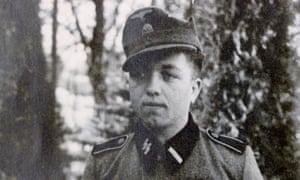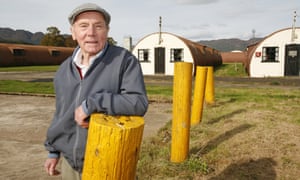Former German PoW leaves £384,000 to Scottish village in will
Former German PoW leaves £384,000 to Scottish village in will
Former German PoW leaves £384,000 to Scottish village in will
by Chris Johnston@cajuk
Heinrich Steinmeyer wanted to thank village of Comrie for its kindness ‘when he was at the lowest point of his life’

It’s the stuff of TV drama: schoolgirls befriend a German prisoner of war being held in Scotland during the second world war. After learning that he had never seen moving pictures, they smuggle him out of the camp for the day and take him to the cinema so he can watch a film for the first time.
That kindness is behind the reason Heinrich Steinmeyer decided to leave almost £400,000 in his will to the people of Comrie in Perthshire.
He returned to Comrie regularly after being freed and made life-long friendships in the area. The German died in 2014, aged 90, and his ashes were scattered in the hills above the camp.
Two years later, his wish to leave £384,000 to the village has been recognised and has been donated to the village’s local community trust to be spent on local development for the elderly.
The Courier newspaper said part of Steinmeyer’s will reads: “I would like to express my gratitude to the people of Scotland for the kindness and generosity that I have experienced in Scotland during my imprisonment of war and hereafter.”

One of the friends he made was George Carson, who died just two weeks before the former soldier.
“During these conversations they discovered that Heinrich had never seen a moving picture, so they went up with their push bikes one morning. One of the girls had taken her brother’s school uniform,” Carson said. “They smuggled him out of the camp through the chain-link fence and into the cinema where he saw his very first film. He was absolutely blown away by the whole experience.”
Carson said he met Steinmeyer a couple of times and described him as a “wonderful man … He had meetings with the Comrie Development Trust in 2008 and asked them to manage his estate on his death. He was quite specific in his will that the money should only be used on the elderly in the village,” Carson said. “This is his thanks for the kindness shown to him at the point of his life where he was at his lowest and he just wants to say thank you to everybody.”
The funds have now been transferred to a Heinrich Steinmeyer Legacy Fund and a consultation has begun to determine how best to spend his legacy.
